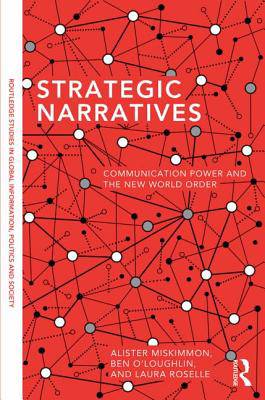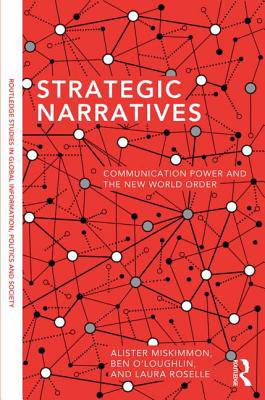
Bedankt voor het vertrouwen het afgelopen jaar! Om jou te bedanken bieden we GRATIS verzending (in België) aan op alles gedurende de hele maand januari.
- Afhalen na 1 uur in een winkel met voorraad
- In januari gratis thuislevering in België
- Ruim aanbod met 7 miljoen producten
Bedankt voor het vertrouwen het afgelopen jaar! Om jou te bedanken bieden we GRATIS verzending (in België) aan op alles gedurende de hele maand januari.
- Afhalen na 1 uur in een winkel met voorraad
- In januari gratis thuislevering in België
- Ruim aanbod met 7 miljoen producten
Zoeken
Strategic Narratives
Communication Power and the New World Order
Alister Miskimmon, Ben O'Loughlin, Laura Roselle
€ 320,95
+ 641 punten
Omschrijving
This book is the first to develop a systematic framework to understand how political actors seek to shape order through narrative projection in this new environment. The concept of strategic narrative draws together the most salient of international relations concepts, including the links between power and ideas; international and domestic; and state and non-state actors. Strategic Narratives shows both the possibilities and the limits of communication and power, and makes an important contribution to theorizing and studying empirically contemporary international relations.
Specificaties
Betrokkenen
- Auteur(s):
- Uitgeverij:
Inhoud
- Aantal bladzijden:
- 224
- Taal:
- Engels
- Reeks:
Eigenschappen
- Productcode (EAN):
- 9780415717601
- Verschijningsdatum:
- 12/11/2013
- Uitvoering:
- Hardcover
- Formaat:
- Genaaid
- Afmetingen:
- 160 mm x 231 mm
- Gewicht:
- 476 g

Alleen bij Standaard Boekhandel
+ 641 punten op je klantenkaart van Standaard Boekhandel
Beoordelingen
We publiceren alleen reviews die voldoen aan de voorwaarden voor reviews. Bekijk onze voorwaarden voor reviews.









